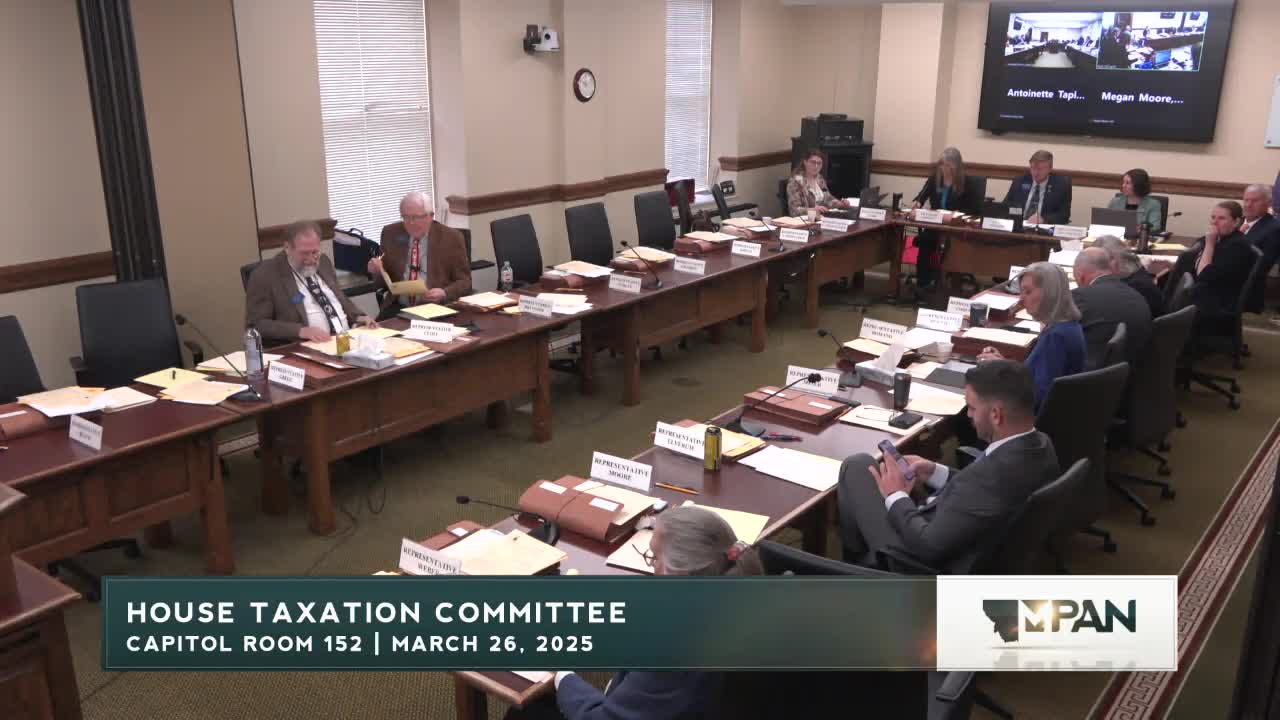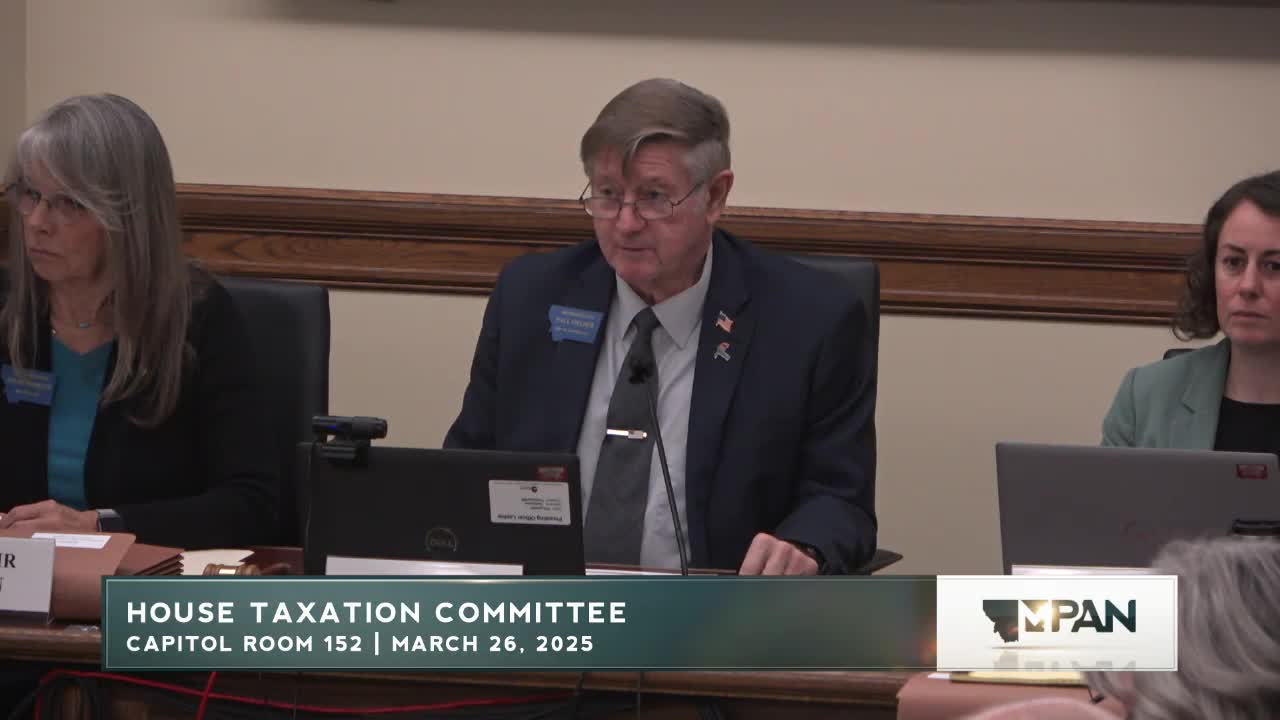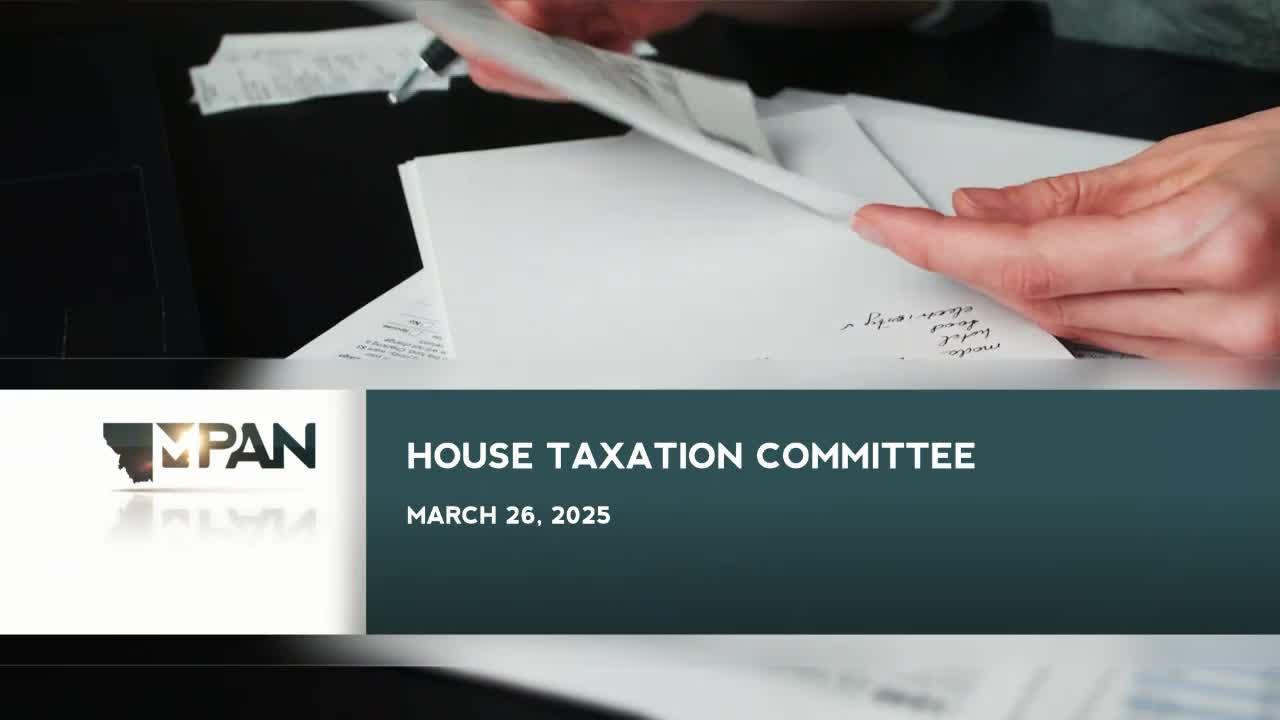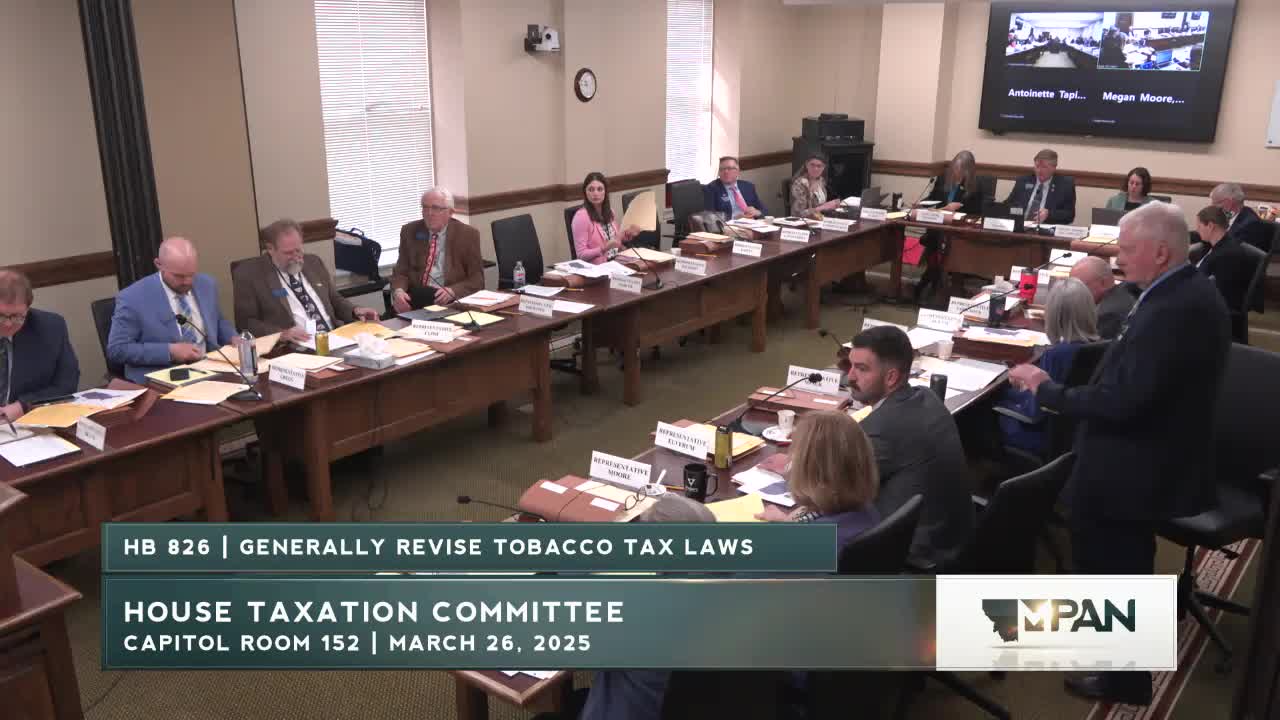Article not found
This article is no longer available. But don't worry—we've gathered other articles that discuss the same topic.

Panel hears bill to raise cigarette tax by $1 per pack; supporters cite health benefits, retailers warn of smuggling and lost sales

Committee hears paired proposals to reserve any statewide sales tax for education property-tax relief

House Taxation Committee executive actions: HB836 passes narrowly; HB839 tabled; HB844 fails then is tabled

